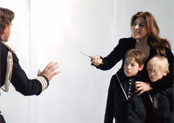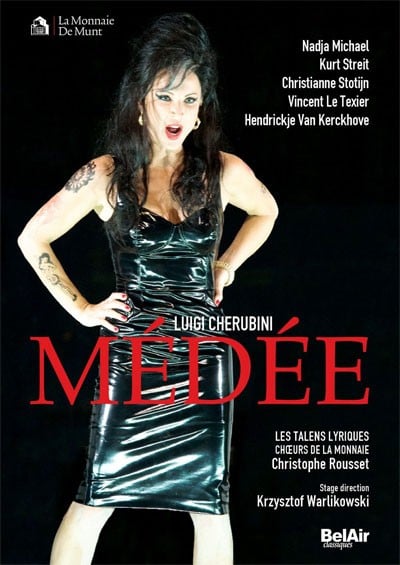OPERA SEARCH

Médée
(Medea) (1793-97)Libretto by François-Benoît Hoffman (F)
2S,M,T,BBar; small roles:2S,1spoken role; silent roles; mixed chorus;
2(I=picc).2.2.2-4.0.1(+1 opt trb).0-timp-strings; wind instruments from orchestra and thunder machine off-stage
Abbreviations (PDF)
Anton J. Benjamin / Simrock
Théâtre Feydeau, Paris
Company: Julie-Angélique Scio (Médée) / Pierre Gaveaux (Jason)
La scène est à Corinthe dans le palais de Créon.
The commanding role of Medea provokes both sympathy and dismay; Cherubini’s music draws us into her inner struggle, the dramatic shift from love to devastating hatred. Rather than focussing on the plot itself, however, the opera explores the psychological processes experienced by the characters. With its stylistic diversity, its dark grandeur and sublimity as well as its grand, self-contained musical scenes, Médée points far beyond the operas of Cherubini’s contemporaries. Hence the acclaim for the work expressed by Haydn, Beethoven, Mendelssohn, Schumann, Wagner and Brahms does not come as a surprise; indeed, Brahms went so far as to praise Médée as the “highest dramatic art”.
Tragic

Michael, Streit, Stotijn, Le Texier, Van Kerckhove / Les Talens Lyriques & Chœurs de la Monnaie / Christophe Rousset (Brussels 2011, directed by Krzysztof Warlikowski)
Bel Air Classiques DVD & Blue-Ray
